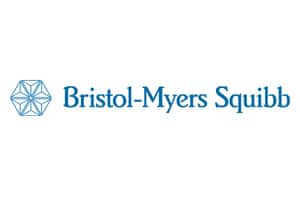
Bristol-Myers Squibb has faced a bump in the road of its expansion plans for Opdivo/Yervoy, after the combination failed to demonstrate a significant benefit in certain high-risk melanoma patients.
Opdivo (nivolumab) and Yervoy (ipilimumab) are being studied in a phase 3 trial – CheckMate-915 – versus Yervoy alone, for the adjuvant treatment of patients who have had a complete surgical removal of stage III or stage IV melanoma.
Unfortunately for BMS, the combination failed to show a statistically significant benefit of recurrence-free survival (RFS) in patients whose tumours expressed low levels of PD-L1 – the co-primary endpoint of the study.
The failure of the combination therapy means that the addition of Yervoy did not have the desired effect in this specific patient population. However, the study’s Data Monitoring Committee has recommended that the study continue, to see if the combination can show benefit in the ‘all-comer’ population pool.
BMS has been hoping to expand the use of Opdvio by adding CTLA4 checkpoint inhibitor Yervoy to make it a combination treatment, as sales growth of the PD-1 checkpoint inhibitor stalls.
In the company’s recent third-quarter results, BMS revealed that Opdivo grew just 1% to $1.2bn, with sales slipping 5% in the US, reversing consistent growth since its launch five years ago.
According to BMS chief executive Giovanni Caforio, Opdivo/Yervoy’s can demonstrate better long-term survival than the PD-1 inhibitor/chemo combination – which is driving rival Keytruda from Merck – at least in certain settings such as first-line non-small cell lung cancer.
It seems that this principle does not extend across all cancer types, with this stumble in melanoma a clear example of that.
In fact, in an earlier study which compared Opdivo alone to Yervoy in adjuvant melanoma, the PD-1 inhibitor alone actually reduced the rate of recurrence in patients with high-risk, advanced stage melanoma who received the drug along with surgery.
While Opdivo was the first PD-1 inhibitor to reach the market in Europe and Japan, Keytruda’s earlier entry in the US allowed it to top Opdivo in terms of sales. Merck’s drug has now gone on to dominate in the class, particularly thanks to its indication for treatment in NSCLC.
However, BMS has recently announced positive results from its pivotal phase 3 CheckMate-9LA study, which is studying Opdivo/Yervoy in first-line advanced NSCLC, regardless of PD-L1 expression. At the interim analysis, the combination met its primary endpoint of superior overall survival.
These results strengthen the case for the combo in NSCLC, but if it gains approval in this indication BMS may find it hard to convince clinicians to make the switch, as the Keytruda regimen is already widely prescribed for newly-diagnosed NSCLC patients.




